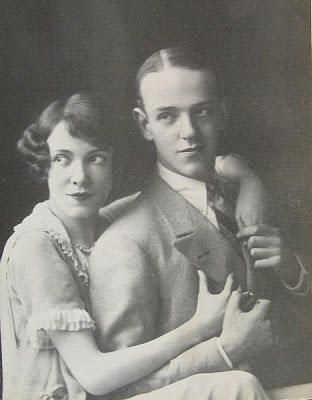My favorite kind of spat, family. In the plaintiff’s corner we have Robyn Astaire, widow of Fred Astaire. How could I not have a gratuitous embedded video of the master:
In the defendant’s corner we have her stepdaughter, Phyllis Ava Astaire McKenzie, along with two other individuals and Career Transition for Dancers, Inc. What is the evil stepdaughter up to? Why, running an award show for Broadway dancers called the Fred and Adele Astaire Awards. Robyn sued her stepdaughter (who is two years older than Robyn – no hard feelings there) to try to stop the award show. The New York Times reports:
|
According to the complaint, Fred Astaire in 1982 authorized use of his name on what were then the Astaire Awards (his sister, Adele, was added later). After Mr. Astaire’s death in 1987, Ms. Astaire periodically authorized use of the name for the event, but, as of 2006, stopped giving permission because of what the complaint described as a change in its “nature and character.” |
Bummer that the complaint isn’t on PACER, but some details and perhaps some of the court’s reasoning can be found in the defendant’s motion to dismiss.
No luck for Robyn, though. She was told tersely by the court that
| Essentially, plaintiff claims a right of publicity in the name Fred Astaire. The Lanham Act does not create a right of publicity without either secondary meaning or likelihood of confusion, the essential elements of a trademark claim. Plaintiff has made no showing that an “Astaire Awards” presentation has acquired a secondary meaning. Plaintiff has not shown that consumers will be deceived into believing that the late Fred Astaire endorsed defendants’ awards, which are described as “in tribute” to Fred and Adele Astaire. Accordingly, plaintiff has not shown a likelihood of success on the merits or irreparable harm from the presentation of an award in memory of two great dancers, Fred Astaire and his sister Adele. |
Robyn had to settle for a huffy press release and the show went on. Discuss amongst yourselves how the court could conclude that consumers wouldn’t be deceived into believing that Fred endorsed the award show when he had while he was alive.
Astaire v. McKenzie, No. 10 Civ. 4305 (S.D.N.Y.).

This work is licensed under a Creative Commons Attribution-No Derivative Works 3.0 United States License.

